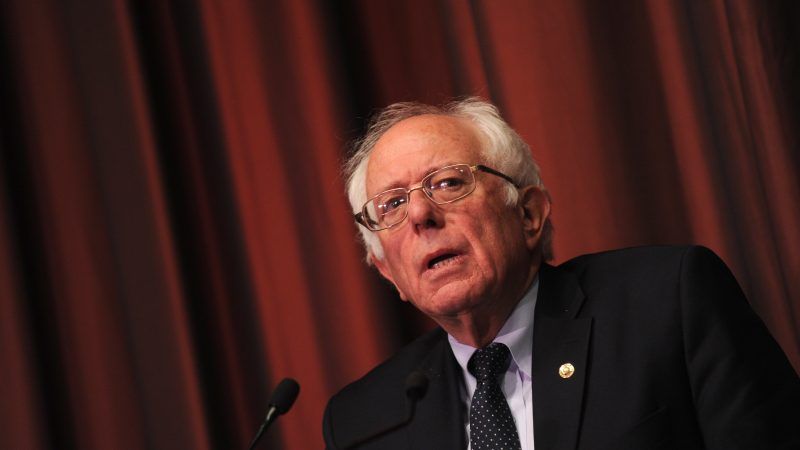Why the Failure of Vermont's Single-Payer Plan Is the Best Argument Against Medicare for All
An argument against Bernie Sanders' health care plan in The New York Times.

In today's New York Times, I look at the failure of Vermont's single-payer health care plan, which collapsed due to low public support and estimates projecting high costs and large tax increases.
The Vermont experiment presages many of the political and policy challenges that would arise under any attempt to pass Medicare for All, the single-payer plan proposed by Sen. Bernie Sanders (I–Vt.) and backed by Sen. Elizabeth Warren (D–Mass.). As I note at the end of the piece, the national political environment for Medicare for All would, if anything, be even less favorable than the political and economic environment for single-payer was in Vermont:
The Vermont plan was done in by high taxes, distrust of government and lack of political support. Any effort by a Sanders administration to enact a single-payer system at a national level would probably be doomed by similar problems.
Like [former Vermont Governor Peter] Shumlin, Mr. Sanders is a devout single-payer supporter who has campaigned aggressively on the idea. And like Mr. Shumlin, Mr. Sanders has so far declined to lay out a plan for fully financing his Medicare for All system.
But while some polls show majority public support for single-payer, that support declines substantially when faced with trade-offs like the elimination of most private coverage or higher taxes—two components of Mr. Sanders's plan.
Similarly, Medicare for All supporters argue that single-payer would reduce the nation's overall health spending. But savings are heavily predicated on the assumption that the new government-run system could pay Medicare rates, which are typically lower than those of private insurance, to providers across the board.
Legislators in Washington State started with the same assumption when they attempted to design a state-managed insurance plan, and it proved wrong. The plan passed only once rates were increased. Yet even a plan with lower rates would still represent an enormous increase in total government spending.
Backers of Medicare for All, including Sanders himself, often argue that the U.S., which spends a greater percentage of its economy on health care than other countries, should be able to finance a universal system. If other countries can do it, why not America?
One problem with this argument is that the plan Sanders has proposed is far more generous than the systems in other countries, eliminating co-pays and most out of pocket spending while covering a broader array of services than you find in other developed nations. It's also more generous than most employer-sponsored plans, and even more generous than our current seniors-only Medicare system, a big component of which is heading for insolvency in less than eight years.
In short, passing and implementing a functional Medicare for All plan along the lines that Sanders envisions would be extremely difficult under any imaginable circumstance. And if it couldn't work in a relatively politically hospitable environment like Vermont, it's hard to see how it could work at a much larger scale.
